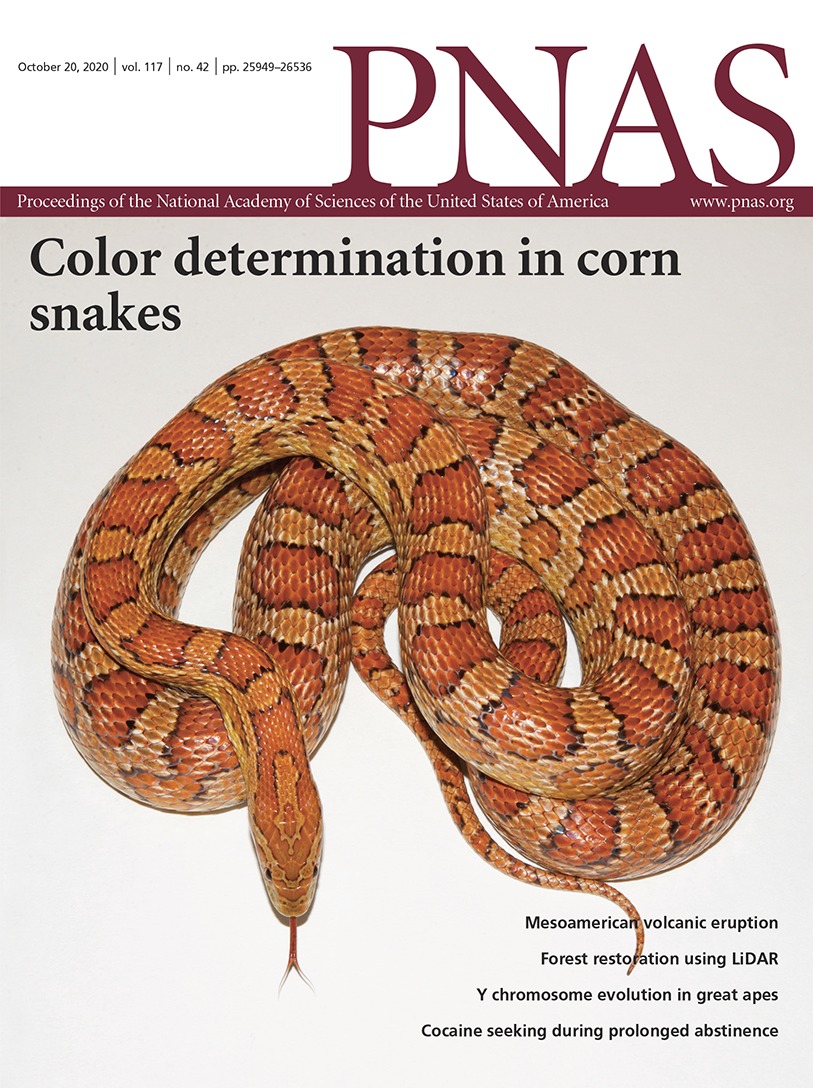publications
Send us a link
In Search of Outstanding Research Advances: Prototyping the Creation of an Open Dataset of "editorial Highlights"
In Search of Outstanding Research Advances: Prototyping the Creation of an Open Dataset of "editorial Highlights"
Peer Review and Gender Bias: A Study on 145 Scholarly Journals
Analytic reproducibility in articles receiving open data badges at the journal Psychological Science
Analytic reproducibility in articles receiving open data badges at the journal Psychological Science
No Time for That Now! Qualitative Changes in Manuscript Peer Review During the Covid-19 Pandemic
No Time for That Now! Qualitative Changes in Manuscript Peer Review During the Covid-19 Pandemic

Does Tweeting Improve Citations? One-Year Results From the TSSMN Prospective Randomized Trial
Does Tweeting Improve Citations? One-Year Results From the TSSMN Prospective Randomized Trial
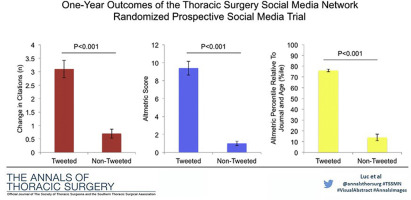
Continued Post-retraction Citation of a Fraudulent Clinical Trial Report, 11 years After It Was Retracted for Falsifying Data
Continued Post-retraction Citation of a Fraudulent Clinical Trial Report, 11 years After It Was Retracted for Falsifying Data
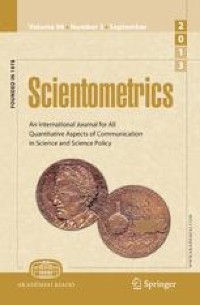
The Association Between Early Career Informal Mentorship in Academic Collaborations and Junior Author Performance
The Association Between Early Career Informal Mentorship in Academic Collaborations and Junior Author Performance
Here, the authors study mentorship in scientific collaborations, and find that mentorship quality predicts the scientific impact of protégés post mentorship. Moreover, female protégés collaborating with male mentors become more impactful post mentorship than those who collaborate with female mentors.
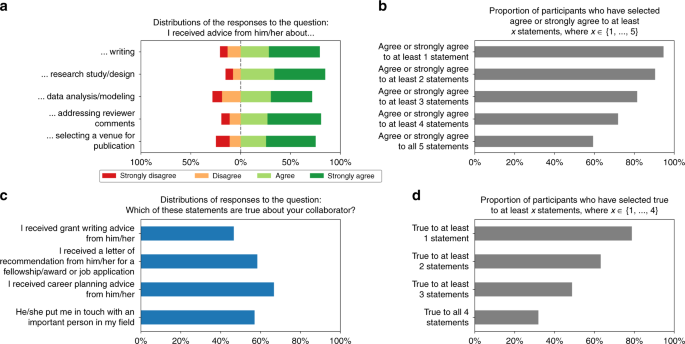
Grant Allocation Disparities from a Gender Perspective: Literature Review. Synthesis Report
Grant Allocation Disparities from a Gender Perspective: Literature Review. Synthesis Report
The purpose of this review is to provide the GRANteD project with robust analytical approaches and methodological insights that take into account the state of the art, but it also acknowledges and aims to overcome the main shortcomings and point out the gaps of the existing literature.
The Academic Response to COVID-19
COVID-19 has posed an unprecedented challenge to the international scientific community. In one of the largest academic surveys ever conducted, 25,307 members of our academic community participated, representing diverse countries, roles, and areas of research.
Scoping the Open Science Infrastructure Landscape in Europe
Scoping the Open Science Infrastructure Landscape in Europe
"We see a diverse, interconnected, open, professional and viable, developing OS ecosystem in Europe on solid ground; one that is worth investing in. At the same time, this developing ecosystem faces a range of issues that challenge its path to a more open and sustainable future." This is a core conclusion of this new SPARC Europe report.
Credibility of Preprints: An Interdisciplinary Survey of Researchers
Cues related to information about open science content and independent verification of author claims were rated as highly important for judging preprint credibility.
Guide to Creative Commons for Scholarly Publications and Educational Resources
Guide to Creative Commons for Scholarly Publications and Educational Resources
This guide wants to inform researchers about the Creative Commons (CC) licence system
From FAIR Leading Practices to FAIR Implementation and Back: An Inclusive Approach to FAIR at Leiden University Libraries
From FAIR Leading Practices to FAIR Implementation and Back: An Inclusive Approach to FAIR at Leiden University Libraries
Paper describe how LU builds up its support for FAIR data before, during and after research through its involvement in leading practices, training and consultancy and end with recommendations for other universities wanting to implement the FAIR principles.
Recommendations for a National Open Science Strategy in Austria
A look at international activities on Open Science reveals a broad spectrum from individual institutional policies to national action plans. The present Recommendations for a National Open Science Strategy in Austria are based on these international initiatives and present practical considerations for their coordinated implementation with regard to strategic developments in research, technology and innovation (RTI) in Austria until 2030. The recommendation paper was developed from 2018 to 2020 by the OANA working group "Open Science Strategy" and published for the first time in spring 2020 for a public consultation. The now available final version of the recommendation document, which contains feedback and comments from the consultation, is intended to provide an impetus for further discussion and implementation of Open Science in Austria and serves as a contribution and basis for a potential national Open Science Strategy in Austria. The document builds on the diverse expertise of the authors (academia, administration, library and archive, information technology, science policy, funding system, etc.) and reflects their personal experiences and opinions.
Covid-19's Known Unknowns
The more certain someone is about covid-19, the less you should trust them.
Rewild to Mitigate the Climate Crisis, Urge Leading Scientists
Restoring degraded natural lands highly effective for carbon storage and avoiding species extinctions.

Transnational Mobility Networks and Academic Social Capital Among Early‐Career Academics: Beyond Common‐Sense Assumptions
Transnational Mobility Networks and Academic Social Capital Among Early‐Career Academics: Beyond Common‐Sense Assumptions
This study examines the composition of academics’ networks at different points in their career and discuss the role of transnational ties within them.
Journal- or Article-based Citation Measure?
In academia, decisions on promotions are influenced by the citation impact of the works published by the candidates. The authors examine whether the journal impact factor rank could be replaced with the relative citation ratio, an article-level measure of citation impact developed by the National Institutes of Health.
The Future of Scholarly Communications
As the rush intensifies to find ways to treat and manage COVID-19, one thing is clear: researchers, along with their counterparts in industry and the health services, need unrestricted access to the research literature.
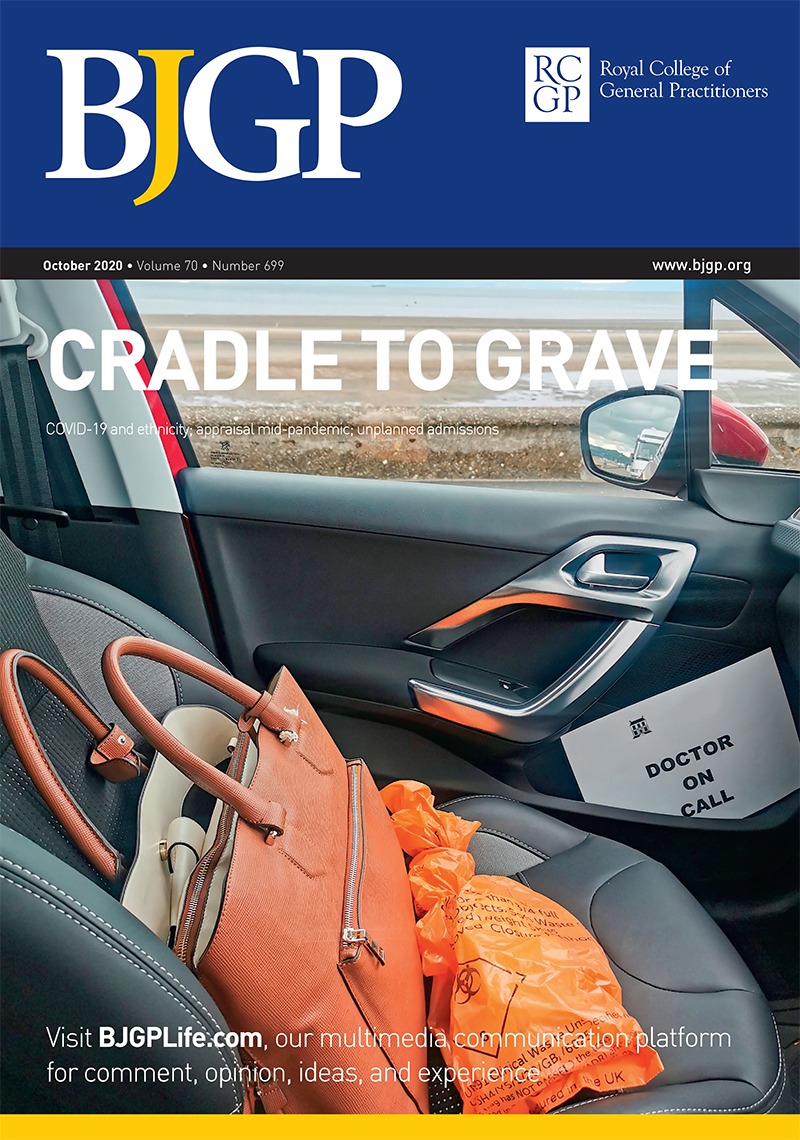
What We Know About Research Policy Mix
Abstract. The research policy (RP) arena has been transforming in recent years, turning into a policy mix encompassing the diversity of policy instruments embe
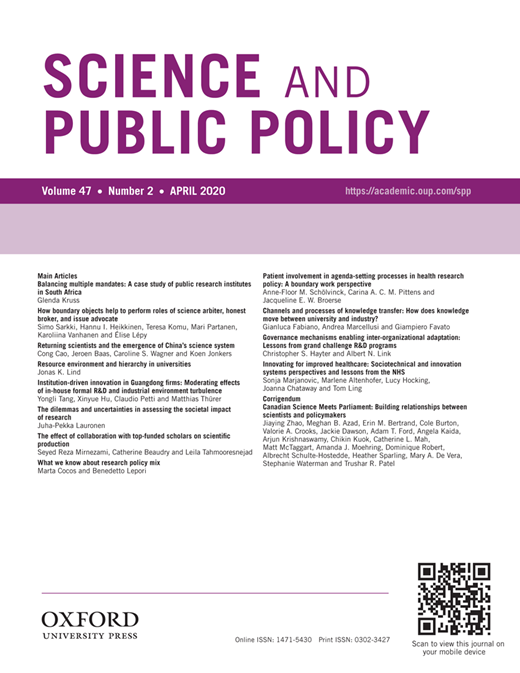
Helping to Archive and Preserve Open Access Journals
Helping to Archive and Preserve Open Access Journals
A recent study looked at the number of journals that had "vanished" from the internet. The study is a timely reminder of how vulnerable publishing outputs are. There is an urgent need for a group of organisations to come together to find a solution and minimise this risk.
Why Scientific Societies Should Involve More Early-Career Researchers
Why Scientific Societies Should Involve More Early-Career Researchers
Appointing early-career researchers to positions of influence within scientific societies would be mutually beneficial for both.
First Report of the INGSA Evidence-to-Policy Tracker
The aim of the study is not to compare and assess the success of countries’ key Covid policy responses, but rather to compare the various ways in which evidence has been marshalled and applied.
What is Meaningful Research and How Should We Measure It?
Purely metric-based research evaluation schemes potentially lead to a dystopian academic reality, leaving no space for creativity and intellectual initiative, claims a new study.
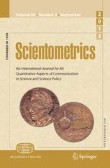
Open Science, Communal Culture, and Women's Participation in the Movement to Improve Science
Open Science, Communal Culture, and Women's Participation in the Movement to Improve Science
Exploring the structure, cultural frames of collaboration, and representation of women in the open science and reproducibility literatures.

Diversifying Readership Through Open Access: A Usage Analysis for Open Access Books
Diversifying Readership Through Open Access: A Usage Analysis for Open Access Books
New Springer Nature white paper analyses geographical diversity and usage of OA books.


